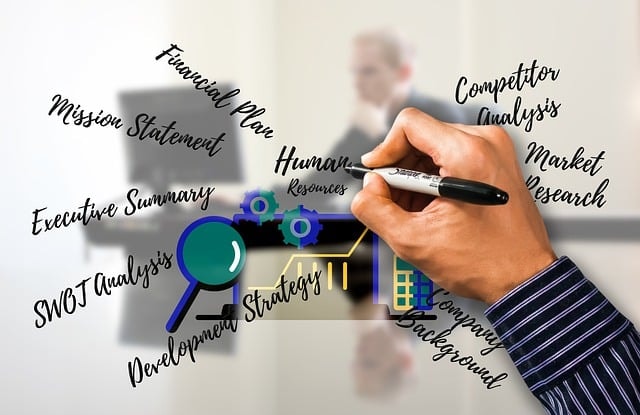Artificial Intelligence (AI) has been the talk of the town for quite some time now. From self-driving cars to virtual assistants, AI has seeped into our everyday lives, transforming how we interact with technology. But as we stand on the brink of a new era, the question on everyone's lips is: What is the next big thing in AI? Let's dive into the exciting possibilities that lie ahead.
Key Takeaways:
- Generative AI and Autonomous Systems: These are set to revolutionize industries by reducing human intervention and enhancing decision-making processes.
- AI in Materials Science and Drug Discovery: AI is opening doors to new materials and faster drug discovery, promising significant advancements in these fields.
- Real-Time Data and Dynamic Environments: AI's ability to process real-time data in dynamic environments is paving the way for more efficient and adaptive systems.
The Rise of Generative AI
Generative AI is not just a buzzword; it's a transformative force in the tech sector. These AI models are designed to create new content, from art to music, with minimal human intervention. Imagine a world where AI can compose symphonies or paint masterpieces, all while understanding the context and nuances of human creativity. This isn't science fiction; it's the reality we're heading towards.
Generative AI is already making waves in various industries. For instance, companies like OpenAI and Google are developing language models that can generate human-like text, opening doors to new possibilities in content creation and communication. These models are not only enhancing business capabilities but also providing a better understanding of complex tasks, making them indispensable tools in the modern world.
Autonomous Systems: The Future of AI
Autonomous systems are the next big thing in AI, promising to revolutionize how we approach problem-solving. These systems can operate independently, making decisions based on real-time data without human intervention. From autonomous vehicles to drones, the potential applications are vast and varied.
In the last few years, we've seen significant advancements in autonomous systems, particularly in the automotive industry. Companies like Tesla are leading the charge, developing cars that can navigate complex environments with ease. But the promise of autonomous systems extends beyond transportation. In industries like agriculture and logistics, these systems are creating more efficient processes, reducing reliance on human labor, and paving the way for a new era of innovation.
AI in Materials Science: A New Frontier
AI is opening doors to new materials and innovations in materials science. By analyzing vast amounts of data, AI can identify patterns and predict the properties of new materials, accelerating the discovery process. This capability is particularly valuable in industries like aerospace and electronics, where new materials can lead to significant advancements.
For example, AI is being used to develop materials with specific properties, such as increased strength or conductivity. This not only enhances the performance of existing products but also opens up new possibilities for innovation. As AI continues to evolve, we can expect even more exciting developments in this field, transforming how we approach materials science and engineering.
Drug Discovery: AI's Role in Healthcare
The healthcare industry is on the cusp of a revolution, thanks to AI's role in drug discovery. By analyzing vast datasets, AI can identify potential drug candidates faster and more accurately than traditional methods. This not only speeds up the drug discovery process but also reduces costs, making healthcare more accessible to a wider range of people.
AI's ability to process complex data and understand context is particularly valuable in drug discovery. For instance, AI models can predict how different compounds will interact with the human body, reducing the risk of adverse effects. This capability is already being used by companies like IBM and Google, who are at the forefront of AI-driven drug discovery, promising a future where new treatments are developed faster and more efficiently.
AI in Creative Arts: Redefining Expression
Artificial intelligence is not just a tool for tech giants; it's also making waves in the creative arts. Imagine AI models that can compose symphonies, paint masterpieces, or even write novels with minimal human intervention. These AI systems are opening doors to a new era of artistic expression, where machines collaborate with humans to create art that was once the sole domain of human creativity. This fusion of technology and art is not science fiction; it's happening now, and it's reshaping how we understand and appreciate creativity.
In the last few years, AI's ability to interact with and understand context in creative processes has grown exponentially. Companies like Google are at the forefront, developing AI models that can mimic human creativity in various industries. These innovations are not just about creating art; they're about enhancing our understanding of the creative process itself. By reducing reliance on traditional methods, AI is enabling artists to explore a wider range of possibilities, pushing the boundaries of what art can be. This trend is not just exciting; it's a testament to the promise of AI in transforming everyday life.
AI in Creative Arts: Redefining Expression
Artificial intelligence is not just about crunching numbers or solving complex problems; it's also making waves in the creative arts. Imagine AI models that can compose symphonies, paint masterpieces, or even write novels with minimal human intervention. These AI systems are opening doors to a new era of artistic expression, where machines collaborate with humans to create art that was once the sole domain of human creativity. This fusion of technology and art is not just science fiction; it's happening now, with AI tools enabling artists to explore a wider range of possibilities and redefine what art can be.
In the last few years, companies like Google have been at the forefront of integrating AI into creative processes. For example, AI-generated music and visual art are becoming increasingly popular, offering a fresh perspective on traditional art forms. These innovations are not just about creating money machines; they are about enhancing the capabilities of artists to interact with their work in dynamic environments. As AI continues to evolve, we can expect even more exciting developments in the creative arts, where the line between human and machine creativity becomes beautifully blurred.
AI in Finance: Transforming the Money Machines
Artificial intelligence is reshaping the financial sector, creating money machines that operate with minimal human intervention. AI models are now capable of handling complex tasks such as fraud detection, risk management, and algorithmic trading. These systems analyze real-time data to make informed decisions, reducing reliance on human judgment and increasing efficiency. For example, companies like Google are leveraging AI to enhance their financial services, offering tools that promise better understanding and decision-making processes. As AI continues to evolve, the tech sector anticipates a new era where financial operations are more streamlined and secure.
The integration of AI in finance is not just about efficiency; it's about opening doors to new opportunities. With the ability to interact with dynamic environments, AI systems are transforming how businesses approach problem-solving. These innovations are not confined to big tech; they are permeating various industries, offering a wider range of capabilities. From predicting market trends to optimizing investment strategies, AI is setting the stage for the next big thing in finance. As we look to the future, expect AI to play a pivotal role in shaping the financial landscape, making it more accessible and responsive to the needs of everyday life.
AI in Education: Transforming Learning Experiences
Artificial intelligence is reshaping education, offering a glimpse into what the next big thing in AI might be. AI models are being integrated into classrooms to provide personalized learning experiences, reducing reliance on traditional teaching methods. These systems can adapt to individual learning paces, ensuring that students grasp complex tasks with minimal human intervention. For instance, language models are being used to enhance reading comprehension and writing skills, opening doors to a wider range of educational opportunities. As AI continues to evolve, it promises to transform education into a more dynamic and interactive experience.
In recent years, AI's role in education has expanded beyond simple tutoring systems. Current AI systems are capable of analyzing vast amounts of training data to better understand student needs and predict learning outcomes. This ability to interact with real-time data allows educators to make informed decisions, tailoring their teaching strategies to improve student engagement and success. Companies like Google are at the forefront of these innovations, creating tools that not only enhance learning but also prepare students for the tech sector's demands. As AI continues to develop, its potential to revolutionize education is limitless, promising a new era of learning.
AI in Finance: Revolutionizing the Industry
The finance industry is experiencing a seismic shift, with artificial intelligence at the helm of this transformation. AI models are being deployed to tackle complex problems, such as fraud detection and risk management, with minimal human intervention. These systems can process real-time data to identify anomalies and predict market trends, providing a better understanding of financial landscapes. As AI continues to advance, it is expected to reduce reliance on traditional financial models, offering more efficient and accurate decision-making processes that benefit both businesses and consumers.
AI's integration into finance is not just about efficiency; it's about creating money machines that can handle specific tasks with precision. For example, autonomous systems are being used to automate trading, allowing for faster and more informed decisions in dynamic environments. This shift is not only transforming how financial institutions operate but also how they interact with clients. By leveraging AI's capabilities, the finance industry is poised to enter a new era of innovation, where technology and human expertise work hand in hand to drive growth and success. As we look to the future, AI's role in finance will undoubtedly continue to expand, offering exciting new possibilities for the industry.
AI and Robotics: The Reality of Science Fiction
In the last few years, the line between science fiction and reality has blurred, thanks to advancements in AI and robotics. These technologies are now capable of performing specific tasks with precision, reducing the need for human intervention. Robots equipped with AI are being deployed in industries ranging from manufacturing to healthcare, where they assist in surgeries and automate routine processes. This shift is not just about replacing human labor; it's about enhancing capabilities and creating systems that understand context and adapt to changing conditions.
The promise of AI in robotics extends beyond industrial applications. In everyday life, robots are becoming companions and assistants, capable of interacting with humans in meaningful ways. Companies are investing in AI-driven robots that can perform household chores, provide companionship to the elderly, and even assist in educational settings. This exciting next big thing in AI is not just about technological advancement; it's about improving quality of life and expanding the possibilities of what machines can achieve. As AI continues to develop, we can expect robots to become an integral part of our daily routines, offering solutions to complex problems and enhancing our interactions with the world.
AI in Environmental Conservation: A Green Revolution
The next big thing in AI might just be its role in environmental conservation. AI systems are being developed to tackle some of the most pressing environmental issues, from monitoring wildlife populations to predicting natural disasters. These AI models can process real-time data to make informed decisions, reducing the reliance on human intervention and allowing for more efficient conservation efforts. By understanding context and analyzing vast amounts of data, AI is helping us gain a better understanding of our planet and the complex tasks involved in preserving it.
In various industries, AI is being used to create more sustainable practices. For instance, AI-driven drones are being deployed to plant trees in deforested areas, while machine learning algorithms are optimizing energy consumption in smart cities. These technologies are not just about solving specific tasks; they are about creating a whole bunch of opportunities for a greener future. As we continue to explore the potential of AI in environmental conservation, we are entering a new era where technology and nature work hand in hand to ensure the well-being of our planet.
AI in Education: Revolutionizing Learning
The education sector is experiencing a seismic shift thanks to artificial intelligence. AI systems are being integrated into classrooms to assist with complex tasks such as personalized learning and real-time data analysis. These tools are designed to enhance the learning experience by providing tailored educational content that meets the specific needs of each student. By leveraging AI, educators can better understand student performance and adapt teaching methods accordingly, making learning more efficient and effective.
AI's role in education extends beyond the classroom. It's also transforming how educational institutions operate, from administrative tasks to decision-making processes. For example, AI models can analyze vast amounts of data to predict student outcomes, helping schools make informed decisions about resource allocation and curriculum development. This ability to process and interpret data in dynamic environments is not just a big thing; it's a game changer for the education sector. As AI continues to evolve, we can expect even more innovative applications that will further revolutionize how we teach and learn.
Real-Time Data Processing: A Game Changer
AI's ability to process real-time data is a game changer in dynamic environments. Whether it's monitoring traffic patterns or predicting weather changes, AI systems can analyze data as it comes in, making decisions on the fly. This capability is particularly valuable in industries like logistics and transportation, where real-time data can significantly enhance efficiency and decision-making processes.
For example, AI systems are being used to optimize delivery routes, reducing fuel consumption and improving delivery times. In the tech sector, companies are leveraging AI to monitor network traffic and detect anomalies in real-time, enhancing security and reducing downtime. As AI continues to evolve, we can expect even more innovative applications of real-time data processing, transforming how we approach complex problems.
Machine Learning: The Backbone of AI
Machine learning is the backbone of AI, enabling systems to learn from data and improve over time. This capability is at the heart of many AI innovations, from language models to autonomous systems. By analyzing vast amounts of data, machine learning algorithms can identify patterns and make predictions, enhancing decision-making processes and reducing reliance on human intervention.
In the business world, machine learning is being used to analyze customer data, providing insights that drive marketing strategies and improve customer experiences. In the tech sector, companies are using machine learning to develop more efficient algorithms, enhancing the performance of AI systems. As machine learning continues to evolve, we can expect even more exciting developments, transforming how we approach problem-solving and innovation.
AI and the Tech Sector: A Symbiotic Relationship
The tech sector and AI have a symbiotic relationship, with each driving advancements in the other. As AI continues to evolve, it's opening doors to new possibilities in the tech sector, from more efficient algorithms to innovative applications. This relationship is particularly evident in the development of AI models, which are becoming increasingly sophisticated and capable of tackling complex tasks.
For example, companies like Google and Microsoft are at the forefront of AI research, developing models that can understand and generate human-like text. These models are not only enhancing business capabilities but also providing a better understanding of complex problems, making them indispensable tools in the modern world. As AI continues to evolve, we can expect even more exciting developments in the tech sector, transforming how we approach innovation and problem-solving.
The Promise of AI: A New Era of Innovation
The promise of AI is a new era of innovation, where technology and human creativity come together to solve complex problems. From autonomous systems to generative AI, the possibilities are endless, and the potential applications are vast and varied. As we stand on the brink of this new era, it's clear that AI is set to revolutionize how we approach problem-solving and innovation.
In the business world, AI is being used to enhance decision-making processes, reduce reliance on human intervention, and create more efficient systems. In the tech sector, AI is driving advancements in algorithms and applications, opening doors to new possibilities and transforming how we approach innovation. As AI continues to evolve, we can expect even more exciting developments, promising a future where technology and human creativity come together to solve complex problems.

Summary
AI is not just a tool; it's a transformative force that's reshaping industries and redefining how we approach problem-solving. From generative AI to autonomous systems, the next big thing in AI promises to revolutionize how we interact with technology and the world around us. As we stand on the brink of this new era, it's clear that AI is set to play a pivotal role in shaping the future, opening doors to new possibilities and transforming how we approach innovation.

Q1: What is generative AI, and how is it different from other AI models?
Generative AI refers to models that can create new content, such as text, images, or music, with minimal human intervention. Unlike traditional AI models that focus on specific tasks, generative AI is designed to understand context and nuances, making it a powerful tool for creative industries.
Q2: How is AI being used in drug discovery?
AI is revolutionizing drug discovery by analyzing vast datasets to identify potential drug candidates faster and more accurately than traditional methods. This not only speeds up the discovery process but also reduces costs, making healthcare more accessible to a wider range of people.
Q3: What role does machine learning play in AI advancements?
Machine learning is the backbone of AI, enabling systems to learn from data and improve over time. This capability is at the heart of many AI innovations, from language models to autonomous systems, enhancing decision-making processes and reducing reliance on human intervention.









